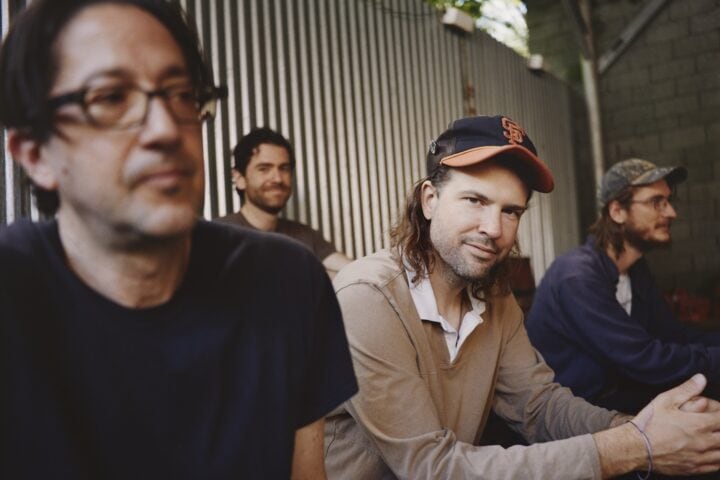The songs on Bartees Strange’s Farm to Table, as is customary of many artists’ sophomore efforts, are reflections on fame, with the artist alternately reveling in and rejecting his ascendant notoriety. On “Cosigns,” he cheekily tallies the various indie stars—Phoebe Bridgers, Lucy Dacus, Courtney Barnett, Justin Vernon—who appear in his recent call history, and boasts of incoming royalty checks from his record label. Another track, “Escape This Circus,” is written from the comforts of an expensive hotel, as Bartees details how his good fortune doesn’t blind him to the world’s cruel inequities, expressing a desire to exit the trappings of the music industry or, perhaps, society altogether.
The ambiguities of the latter song—what circus, exactly, Bartees is referencing, as well as some coded nods to racial tension—are indicative of the way his lyrics walk a fine line between the cryptic and the obvious. He can veer toward blunt histrionics, but there are usually enough blanks left between the lines to invite a sense of mystery and avoid easy resolutions.
There’s a dramaturgical sweep to certain moments across Farm to Table, as when Bartees belts, “I find it hard to get over this right now,” in between stabs of guitar on “Mulholland Dr.” But the impediment that the song describes has been so nebulously defined that we’re left to chew on a sense of existential dread that, intriguingly, we’re never told the source of.
With Farm to Table, Bartees puts distance between himself and his most obvious inspirations. His debut EP consisted of covers of songs by the National, and several songs from his first album, Live Forever, also bore that band’s influence. But while Farm to Table’s rousing opener, “Heavy Heart,” recalls the Dessner brothers’ frantic yet precise drumming and intermingling of piano and minor-key guitar melodies, Bartees attempts to carve out a sonic palette of his own on much of the album. The arrangements are roomier and looser, and there are effective juxtapositions between twinkling quietness and sudden outbursts, as on “Wretched.”
But in casting off the lo-fi chaos of Live Forever and, thankfully, most of its flirtations with hip-hop, Bartees strikes a somewhat anonymous note with this album’s well-executed but rather straightforward rock, replete with several showy guitar solos. One notable exception is “Black Gold,” which is clearly indebted to 22, A Million-era Bon Iver in the way that Bartees’s shuddering baritone seems to be a part of the track’s fraying, glitchy beat and is contrasted with a rafters-reaching falsetto. In this case, though, Bartees makes the aesthetic his own, delivering a pristine vocal and embedding what sounds like home recordings of chattering family members into the track, imprinting it with a personal touch.
Indeed, when Bartees is reminiscing about his parents and childhood in Oklahoma, Farm to Table is at its most tender. He achingly remembers a relative who died too young on “Hold the Line,” wishing that he could trade his life to bring back “the man with that big ol’ smile” as a sorrowful steel pedal sounds off in the background. And on the acoustic guitar-driven “Tours,” he seems to both conjure memories of his parents from his own vantage, as well as take the perspective of his father calling home from a military base. Its meaning seems intentionally open to interpretation—and the song is all the more resonant for it.
Since 2001, we've brought you uncompromising, candid takes on the world of film, music, television, video games, theater, and more. Independently owned and operated publications like Slant have been hit hard in recent years, but we’re committed to keeping our content free and accessible—meaning no paywalls or fees.
If you like what we do, please consider subscribing to our Patreon or making a donation.





